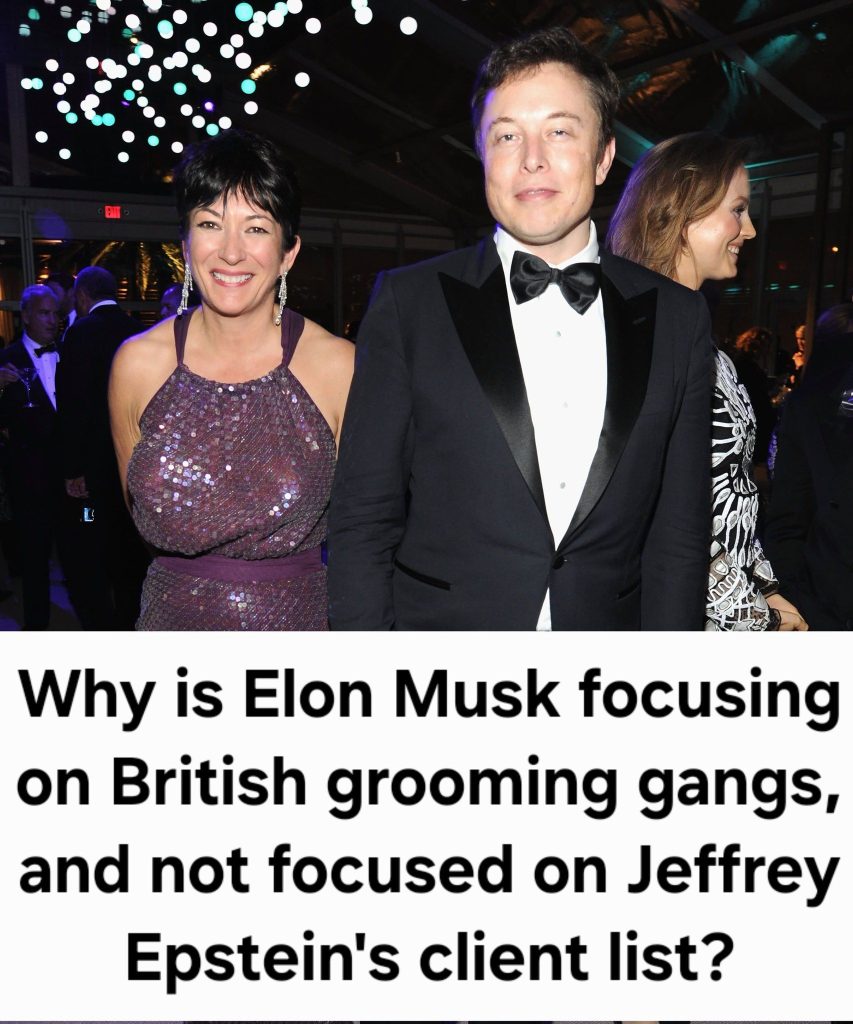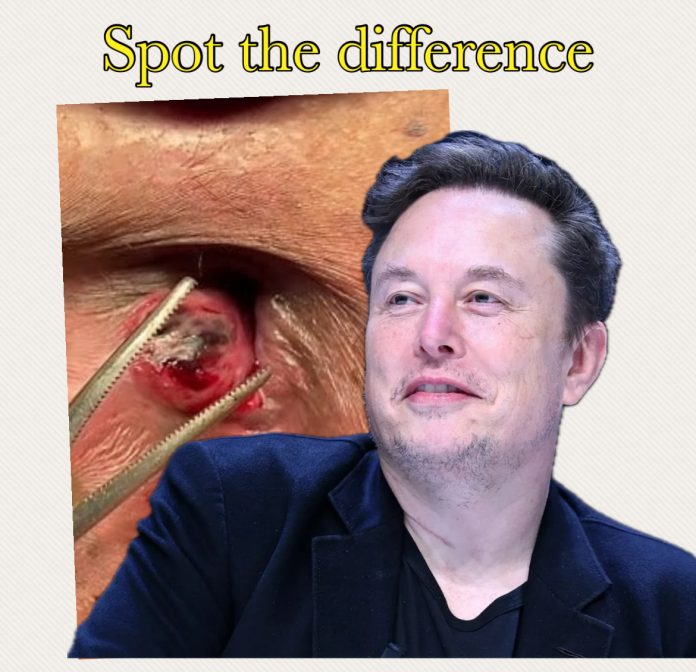Elon Musk, the billionaire entrepreneur and owner of X (formerly Twitter), has once again ignited debate by wading into the fraught world of British politics. In a tweet posted on Sunday, Musk declared that Reform UK, the right-leaning political party led by Nigel Farage, is in need of a “new leader,” asserting that Farage “doesn’t have what it takes.” The comment followed a series of controversial statements Musk has made in recent days about the UK’s historic grooming gang scandals and his apparent support for far-right activist Tommy Robinson.
Musk’s remarks come at a particularly sensitive time for Farage, whose leadership of Reform UK faces increasing scrutiny amid debates over the party’s direction and public image. The fallout from Musk’s comments has also highlighted the tensions between mainstream political figures and fringe activists, underscoring deeper divisions in the UK’s political landscape.
The Context of Musk’s Criticism
The origins of Musk’s latest political intervention trace back to the longstanding issue of grooming gangs, a subject that has haunted UK towns and cities for over a decade. The crimes, which involved the sexual exploitation of vulnerable young women, have drawn widespread public outrage and criticism of government inaction. Musk has taken aim at the handling of the scandal, targeting figures such as Prime Minister Sir Keir Starmer and safeguarding minister Jess Phillips. His criticism, which he aired on X, accused the UK government of failing to address systemic issues that allowed such crimes to occur.
In a particularly controversial twist, Musk expressed his admiration for Tommy Robinson, a far-right activist and founder of the English Defence League (EDL), who is currently serving an 18-month prison sentence for contempt of court. Robinson, whose real name is Stephen Yaxley-Lennon, has long been a polarising figure in British politics, known for his vehement criticism of Islam and his claims to champion victims of grooming gangs. Musk’s endorsement of Robinson, encapsulated in the post “Free Tommy Robinson,” has drawn widespread criticism, even as it resonates with certain sections of his online audience.
Farage’s Response to Musk and Robinson
Nigel Farage, who has sought to position Reform UK as a credible alternative to mainstream parties, found himself in an awkward position following Musk’s endorsement of Robinson. Speaking at a party conference, Farage attempted to distance himself from the jailed activist, stating, “He [Robinson] is not what we need.” The Reform UK leader further emphasised that Robinson’s imprisonment was not related to his activism against grooming gangs but rather his conviction for contempt of court.
Farage’s remarks reflect a careful balancing act. While Reform UK has sought to tap into public frustration over issues like immigration and law enforcement, the party has tried to avoid associations with far-right figures that could alienate broader support. By downplaying Robinson’s relevance, Farage appears to be drawing a line between his party’s goals and the rhetoric of figures like Robinson.
Musk’s Role in British Political Discourse
Elon Musk’s intervention raises important questions about the role of influential global figures in domestic politics. With over 150 million followers on X, Musk wields an unparalleled platform to shape public opinion. His comments about Reform UK and Nigel Farage are not the first time he has weighed in on contentious political issues. However, his endorsement of Robinson marks a departure from his typical focus on technology, free speech, and global affairs, plunging him into the minefield of UK identity politics.
Critics argue that Musk’s support for Robinson legitimises far-right narratives and undermines efforts to foster inclusive discourse. Tommy Robinson’s history of inflammatory rhetoric and legal troubles makes him a deeply divisive figure, and Musk’s praise risks amplifying voices that thrive on polarisation. For many, Musk’s alignment with Robinson is particularly jarring given the activist’s criminal record and the legal context of his imprisonment.
Grooming Gangs and Political Accountability

At the heart of this controversy lies the unresolved trauma of grooming gang scandals, a subject that continues to stir profound emotions across the UK. The crimes, which predominantly involved men of South Asian descent preying on vulnerable girls, have been weaponised by various political actors to advance broader narratives about immigration and multiculturalism. Critics of the government, including Musk, have accused authorities of prioritising political correctness over safeguarding victims.
While some, like Musk, have championed Robinson as a whistleblower, others caution against romanticising his role. Robinson’s actions—such as live-streaming outside a court in breach of reporting restrictions—have repeatedly crossed legal boundaries, complicating his claims to moral authority. Farage’s comments about Robinson’s irrelevance highlight the tension between acknowledging past failures and rejecting individuals who exploit those failures for personal or political gain.
The Question of Reform UK’s Leadership
Musk’s assertion that Nigel Farage “doesn’t have what it takes” to lead Reform UK invites speculation about the party’s future. Farage, who rose to prominence as the face of Brexit, has long been a divisive figure in British politics. His ability to galvanise support for leaving the European Union showcased his talent for tapping into public discontent, but questions remain about whether that skill translates into broader political leadership.
Reform UK, which evolved from the Brexit Party, has struggled to carve out a distinct identity in a post-Brexit landscape. Its focus on immigration, free speech, and anti-establishment rhetoric appeals to a specific voter base, but the party has yet to make significant inroads in national elections. Musk’s criticism could add to existing pressures on Farage to redefine the party’s direction and broaden its appeal.
Implications for UK Politics
The intersection of Musk’s comments, Farage’s leadership, and the ongoing debate about grooming gangs underscores a broader crisis in British politics. Trust in traditional institutions is eroding, and the rise of populist movements reflects widespread frustration with the status quo. Figures like Musk, with their vast online reach and willingness to challenge political orthodoxy, have the potential to shape public discourse in unpredictable ways.
However, Musk’s engagement also highlights the risks of reducing complex issues to simplistic narratives. Grooming gangs, for example, represent a multifaceted problem requiring nuanced solutions, including better safeguarding, community engagement, and legal reform. Aligning with polarising figures like Tommy Robinson risks overshadowing these critical discussions with divisive rhetoric.
Conclusion
Elon Musk’s call for a leadership change in Reform UK and his endorsement of Tommy Robinson have sparked a storm of debate about the role of global influencers in domestic politics. For Nigel Farage and Reform UK, the controversy highlights the challenges of navigating a political landscape marked by polarisation and distrust.
While Musk’s comments may resonate with some disillusioned voters, they also raise important questions about accountability, the influence of social media, and the need for thoughtful, evidence-based approaches to addressing societal issues. As the debate unfolds, it remains to be seen whether Musk’s intervention will galvanise support for Reform UK or further expose the fractures within Britain’s political right.







